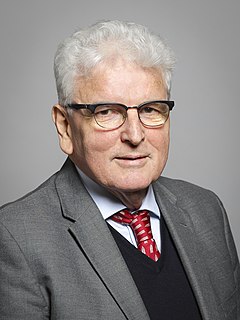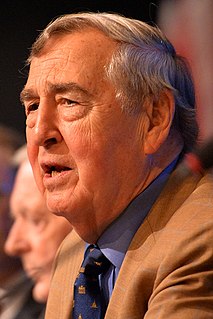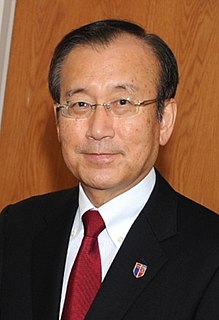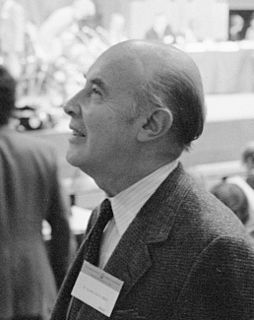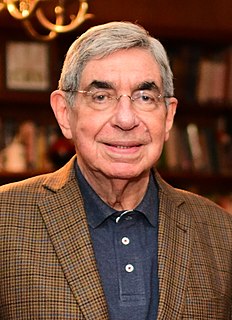A Quote by Henry A. Kissinger
With proper tactics, nuclear war need not be as destructive as it appears.
Quote Topics
Related Quotes
On nuclear war, actions in Syria and at the Russian border raise very serious threats of confrontation that might trigger war, an unthinkable prospect. Furthermore, Trump's pursuit of Obama's programs of modernization of the nuclear forces poses extraordinary dangers. As we have recently learned, the modernized U.S. nuclear force is seriously fraying the slender thread on which survival is suspended.
I think we should be organized in something called an Alliance Against Nuclear Terrorism. In the same way that NATO was the great alliance of the Cold War and served a great purpose then, we need now, in the war on terrorism, a new alliance, the mission of which would be to minimize the risk of nuclear terrorist attacks, and the members would agree to sign on to the gold standard.
Teller contended, not implausibly, that hydrogen bombs keep the peace, or at least prevent thermonuclear war, because the consequences of warfare between nuclear powers are now too dangerous. We haven't had a nuclear war yet, have we? But all such arguments assume that the nuclear-armed nations are and always will be, without exception, rational actors, and that bouts of anger and revenge and madness will never overtake their leaders (or military and secret police officers in charge of nuclear weapons). In the century of Hitler and Stalin, this seems ingenuous.
In some ways more painful is the fact that their experience appears to be fading from the collective memory of humankind. Having never experienced an atomic bombing, the vast majority around the world can only vaguely imagine such horror, and these days, John Hersey's Hiroshima and Jonathan Schell's The Fate of the Earth are all but forgotten. As predicted by the saying, 'Those who cannot remember the past are condemned to repeat it,' the probability that nuclear weapons will be used and the danger of nuclear war are increasing.
The fact that lately some circles, not less powerful by their small size, have been actively promoting certain theories, as dangerous as they are illusory, of a "limited", "winnable" or "protracted" nuclear war, as well as their obsession of "nuclear superiority", make it advisable to bear always in mind that the immediate goal of all States, as was expressly declared in the Final Document of the Special Assembly of 1978, "is that of the elimination of the danger of a nuclear war"
The existence of nuclear weapons presents a clear and present danger to life on Earth. Nuclear arms cannot bolster the security of any nation because they represent a threat to the security of the human race. These incredibly destructive weapons are an affront to our common humanity, and the tens of billions of dollars that are dedicated to their development and maintenance should be used instead to alleviate human need and suffering



